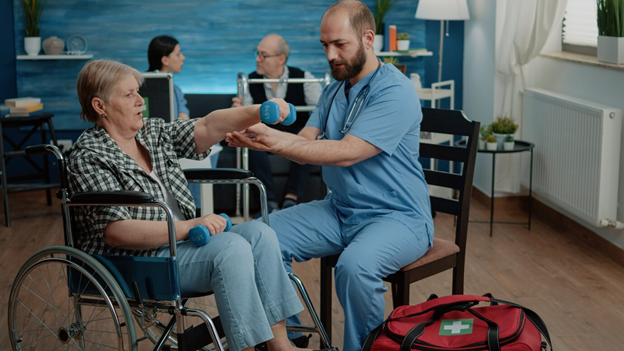Rehabilitation care plays a vital role in promoting long-term health outcomes for individuals recovering from illness or injury. This type of care encompasses a variety of services aimed at restoring function, enhancing quality of life, and reducing the risk of future health issues. Understanding the impact of rehabilitation care is essential for both patients and healthcare providers.
The Importance of Early Intervention
Early intervention is crucial in rehabilitation care. Addressing health concerns promptly can lead to better outcomes. When patients begin rehabilitation soon after an injury or illness, they often experience faster recovery times. This proactive approach can significantly reduce complications, allowing individuals to return to their daily activities more quickly.
Personalized Rehabilitation Plans
Every individual’s needs are unique. A personalized rehabilitation plan is key to effective recovery. These plans are tailored to address specific conditions, goals, and preferences. For example, an athlete recovering from a sports injury may require a different approach than an elderly patient recovering from a stroke. This customization maximizes the effectiveness of rehabilitation care.
The Role of Technology in Rehabilitation Care
Technology is revolutionizing rehabilitation care. Advanced tools and techniques enhance the effectiveness of treatment. For instance, virtual reality (VR) is increasingly used in rehabilitation settings. VR provides immersive environments for patients to practice movements and improve coordination in a safe space.
Building Independence Through Rehabilitation
Rehabilitation care focuses on helping individuals regain independence. Many patients face challenges in performing daily activities after an injury or illness. Modern rehabilitation care programs equip them with the skills and confidence needed to regain control over their lives.
Therapists work closely with patients to develop strategies for overcoming obstacles. This may involve practicing specific tasks, such as dressing or cooking. The ultimate goal is to empower individuals to live as independently as possible, which is crucial for their overall well-being.
The Psychological Aspects of Recovery
The psychological components of rehabilitation care cannot be overlooked. Recovery from illness or injury often involves emotional challenges. Patients may experience anxiety, depression, or frustration during their rehabilitation journey. Addressing these mental health concerns is essential for achieving optimal outcomes.
Therapists often incorporate psychological support into their rehabilitation programs. This can involve counseling, support groups, or stress management techniques. By fostering a positive mindset, patients are more likely to adhere to their rehabilitation plans and achieve better health outcomes.
Measuring Success in Rehabilitation Care
Evaluating the effectiveness of rehabilitation care is essential. Success is measured through various metrics, such as improved mobility, enhanced daily functioning, and increased patient satisfaction. Regular assessments help track progress and make necessary adjustments to treatment plans.
Healthcare providers utilize standardized tools to gauge patient improvements. These tools allow for a consistent approach to measuring outcomes across different populations. This data-driven approach helps refine rehabilitation techniques and enhance overall care quality.
Final Thoughts
Rehabilitation care significantly impacts long-term health outcomes. Its multifaceted approach addresses physical, emotional, and psychological needs. Through personalized plans, early intervention, and advanced technology, patients can achieve substantial improvements in their quality of life.

